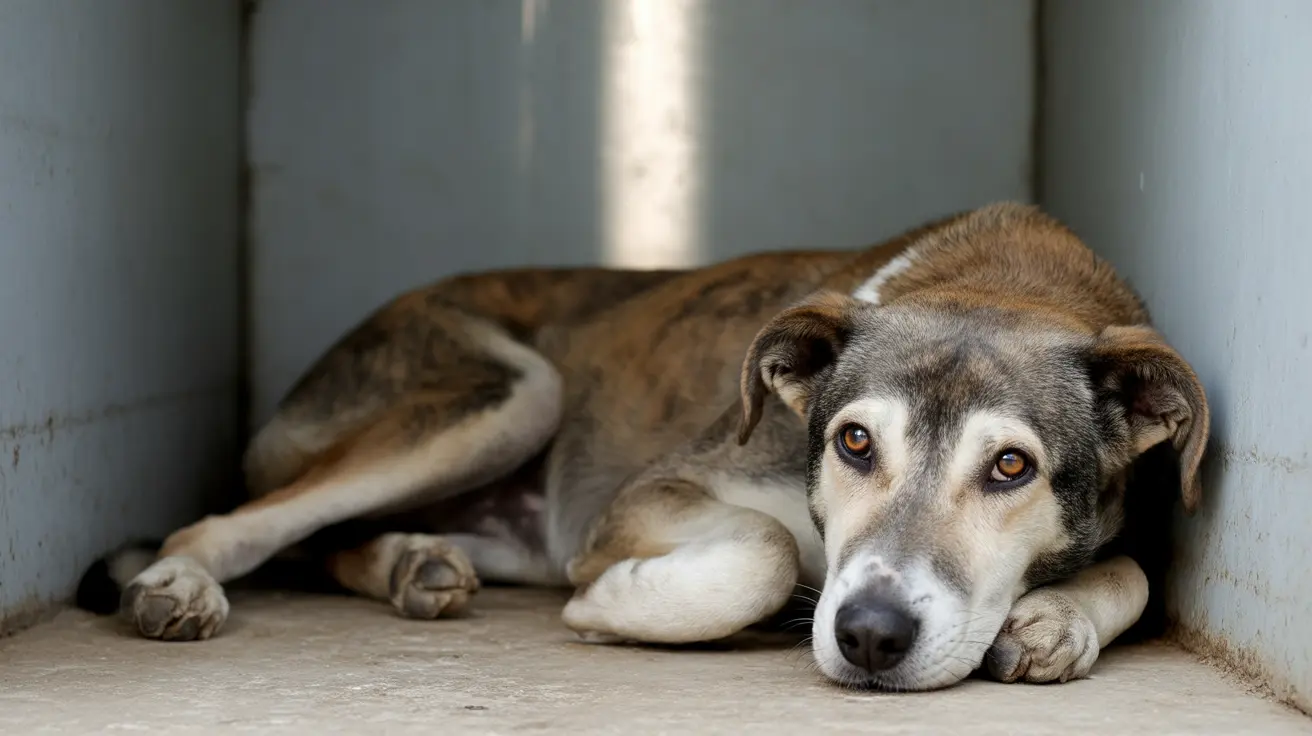A University of Alaska Fairbanks (UAF) student is facing serious legal consequences after being charged with a misdemeanor for allegedly starving two dogs. This animal cruelty Alaska case highlights the critical importance of responsible pet ownership, particularly among college students who may be unprepared for the financial and time commitments required to properly care for animals.
The incident serves as a stark reminder that animal neglect carries both legal and ethical consequences, with Alaska's animal welfare laws designed to protect pets from suffering due to inadequate care. For pet parents and students alike, understanding the legal obligations of pet ownership is essential to prevent similar situations and ensure the wellbeing of beloved companion animals.
Understanding Alaska's Animal Welfare Laws
Alaska takes animal cruelty seriously, with comprehensive laws that protect pets from neglect and abuse. Under state law, pet owners are legally required to provide adequate food, water, shelter, and veterinary care for their animals. Failure to meet these basic needs constitutes animal cruelty and can result in misdemeanor charges, fines, and even imprisonment.
The signs of pet starvation are often visible and concerning, including severe weight loss, lethargy, poor coat condition, and dehydration. Pet owners must recognize these warning signs and take immediate action to address their animal's needs. Regular veterinary check-ups and consistent feeding schedules are fundamental responsibilities that come with pet ownership.
UAF Animal Care Policy and Campus Regulations
The University of Alaska Fairbanks maintains strict policies regarding animals on campus, with pets generally prohibited in university buildings except for authorized service animals or those approved for research purposes. Students seeking disability accommodations involving animals must work through proper channels to ensure compliance with both federal and university regulations.
When UAF student pet regulations are violated, the consequences can extend beyond academic disciplinary actions. The university investigates reported cases of animal welfare violations, and students found responsible may face measures ranging from warnings to expulsion, in addition to any criminal charges filed by local law enforcement.
Responsible Pet Ownership for College Students
College life presents unique challenges for pet ownership, including limited financial resources, demanding academic schedules, and frequently changing living situations. Before bringing a pet into their lives, students should carefully consider whether they can provide consistent care throughout their academic journey.
Essential responsibilities include maintaining regular feeding schedules, providing fresh water daily, ensuring adequate exercise and mental stimulation, and budgeting for veterinary expenses including emergency care. Students should also research their housing options thoroughly, as many dormitories and rental properties have restrictions on pets.
Preventing Animal Neglect and Recognizing Warning Signs
Prevention is always preferable to intervention when it comes to animal welfare. Pet owners should establish consistent daily routines that include proper nutrition, exercise, and attention to their animal's physical and emotional needs. Creating a budget that accounts for food, veterinary care, and unexpected medical expenses helps ensure long-term financial responsibility.
Community members play a vital role in animal welfare by reporting suspected cases of neglect or abuse to appropriate authorities. Early intervention can prevent suffering and potentially save an animal's life while connecting struggling pet owners with resources and support.
The Importance of Education and Support Resources
Educational initiatives focused on responsible pet ownership can help prevent future cases of animal neglect. Universities, veterinary clinics, and animal welfare organizations often provide resources and guidance to help pet owners understand their responsibilities and access affordable care options.
For students and community members facing financial hardships, many areas offer low-cost veterinary services, pet food banks, and temporary fostering programs that can provide assistance during difficult times rather than allowing animals to suffer from neglect.
Frequently Asked Questions
What are the legal consequences of starving or neglecting pets under Alaska law and university policies?
Under Alaska law, failing to provide adequate food, water, shelter, or veterinary care to pets constitutes animal cruelty and can result in misdemeanor charges, fines, or imprisonment. At the University of Alaska Fairbanks (UAF), such acts also violate campus policies and may lead to student disciplinary actions including suspension or expulsion.
Are pets allowed in University of Alaska Fairbanks buildings, and what are the rules for animals on campus?
Pets are generally prohibited in UAF buildings except for authorized service animals or animals approved for research and documented disability accommodations. Owners must control animals, prevent disruption and fouling, and failure to comply can result in removal and disciplinary action.
What signs of pet starvation or neglect should owners watch for to prevent cruelty allegations?
Common signs include severe weight loss, lethargy, poor coat condition, dehydration, and untreated injuries. Regular veterinary care and sufficient food are essential to meet animal welfare standards and avoid cruelty accusations.
What resources and support are available for students at UAF to ensure proper pet care and compliance with policies?
Students can access veterinary services, animal care education, and campus support offices (such as the Disability Services Office and Student Conduct) for guidance and accommodations related to animal care and policy compliance.






